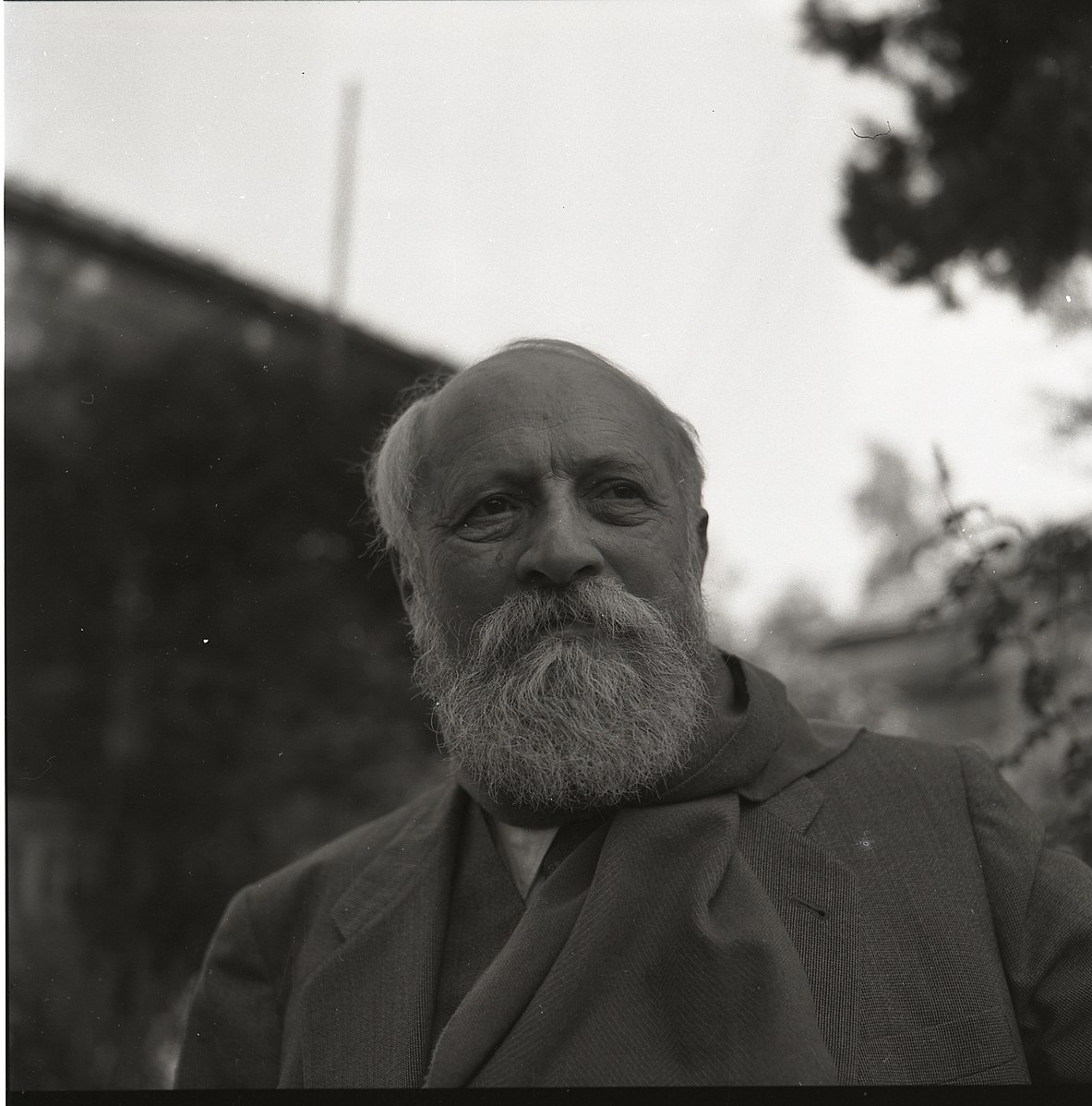
“All real living is meeting.”
-Martin Buber, I and Thou (pictured above)
Before attending the ICJS event with Paul Mendes-Flohr and Ben Sax conversing about philosopher Martin Buber, I had been wrestling with seemingly opposing commitments. I struggled to talk about my growing dedication to my Catholic faith and my simultaneous commitment to interreligious learning and dialogue. I also struggled to express my concern with what I call the zero-sum approach to religious devotion.
The zero-sum approach happens when someone thinks, “The more dedicated I am, the more I need to show and assert this over you; and if you are passionate in your faith, somehow this is a threat to me.” This is a concerning trend that does not lead us to a place of greater understanding, appreciation, and collaboration, which a healthy future demands.
After witnessing the conversation between Mendes-Flohr and Sax, I am convinced that a better way forward is possible.
Up until the last couple years, when asked about my faith I often thought the way to be open, humble, and accepting was to diminish my own religion or my religious devotion. A typical conversation might go as follows:
What’re you up to this weekend?
Not much, running, hanging out with my wife, maybe going to church.
Church, huh? Are you Catholic?
Yeah…but I mean I am not super Catholic or anything. I believe, but, you know…how about you?
After learning more about Buber, I now have language for the yearning in my heart. Mendes-Flohr put it this way:
Each of us is in need of love.
All are in need of mutual relationships of trust. Responding to one another.
Live with one another, without denying your own existence. You don’t negate your “I” to honor your partner.
For us to better live together, we need to investigate how we are interacting with one another. Do our relationships allow us to be ourselves and share ourselves fully? Do we spend time learning about what is most important to people, without letting our own perception shape their answer? It is not about diminishing ourselves to lift others up; it is about lifting others up by becoming ourselves fully with God.
A transformational moment in the dialogue was when Ben shared his gratitude to Paul, who had supervised Ben during his PhD dissertation and who he considers a mentor. Ben shared profound appreciation for all the learning and wisdom he received that helped make him who he is as a scholar. Even further, he expressed gratitude for the care and concern he was shown that helped make him who he is as a person.
This was amidst Mendes-Flohr eloquently and compassionately presenting the case for a move beyond empathy and toward a relationship that includes a mutual interest and respect. This relationship places a high priority on participation—an active involvement in the learning and experiences of others. “Let those facts become a part of your own pain…that’s the beginning of reconciliation.”
From Mendes-Flohr’s words, I learned that the way forward is not deflating the importance of my own faith when I am sharing about who I am and learning about others. The way forward is allowing a loving God to inspire me to include the experience of others in the full development of my own faith. There is no progress, no real devotion, without a commitment to people who might not have the same background, experience, or beliefs that I do.
I am profoundly grateful for this experience, one which reminded me of this prayer by the Rev. Arturo Sosa, S.J., Superior General of the Jesuits:
May we be inspired to have
the openness of heart
that we need to receive
the Holy Spirit
who wants to gift us
the audacity of the impossible.
Yes, change is possible.
Yes, our hearts can be softened.
Yes, our world can find
new ways forward.
There is no progress without a change of heart, without reconciliation, which impels us to always seek closeness and gives us the ability to embrace nuance and the totality of the human experience. In the words of Martin Buber, “All real living is meeting.” May we all have the courage, compassion, and openness to meet one another and experience what it is to live life to the fullest.
Brendan O’Kane serves as Director of Ignatian Mission and Identity at Loyola Blakefield and was a fellow in the 2021-2022 ICJS Teachers Fellowship. Learn more about the ICJS teacher programs for teachers here.
Opinions expressed in blog posts by the ICJS Teacher Fellows are solely the author’s. ICJS welcomes a diversity of opinions and perspectives.